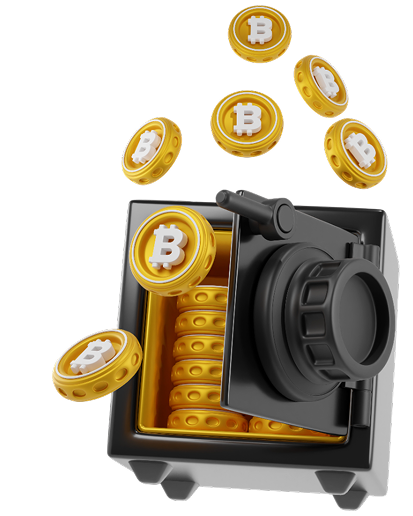Home •➝ Scam Warning
Stay Vigilant and Protect Your Investments
Issues to be aware of related to Cryptocurrency
Bitcoin (and all cryptocurrency) is a potentially risky investment.
General Guidelines
We advise counterparties (customers) to exercise caution, do your due diligence, and be aware that cryptocurrency can be a volatile investment.
Don’t invest any funds that you can’t afford to lose.

If someone is telling you to buy Bitcoin:
- If anyone is telling you that they need to receive funds by Bitcoin or other cryptocurrency, it may very well be fraudulent.
- Bitcoin is very difficult, if not impossible, to trace, and funds sent to someone that way can be nearly impossible to recover.
- If someone is legitimate, they should be able to receive funds by wire transfer, cashier’s check, Western Union, or other means.
- Never send Bitcoin to someone that you do not personally know and trust.
Bitcoin Investment Opportunities
Any ‘investment program’ that is promoted online that promises returns that seem too good to be true and which requires cryptocurrency in order to invest in is almost certainly a scam.
This includes ‘Bitcoin Mining Pools’ and most other investment opportunities that require cryptocurrency.
If you are unsure about an investment opportunity, please reach out to us. We have years of experience and are usually willing to research anything that you are considering.
Cryptocurrency Risks
- Cryptocurrency is built on a secure protocol, but owning and investing in crypto is not without risk. As an often unregulated and decentralized technology, cryptocurrency can be inherently more risky than other asset classes.
- Cryptocurrency is Volatile
- Cryptocurrency is not FDIC-Insured or SIPC-Insured
- Cryptocurrency systems and platforms can be susceptible to hacking.
- Cryptocurrency can be lost due to lost passwords or other errors.
Protecting your Digital Investments
- Store your Cryptocurrency Safely – a hardware wallet is the most secure way to store your cryptocurrency, but it requires research in order to do so effectively.
- Use strong passwords and change them frequently.
- Use 2-stage authentication and verification for increased transaction security.
- Use a trustworthy wallet, and store your ‘seed phrase’ separately and in multiple secure locations.
- Avoid storing cryptocurrency online in an exchange or other online platform.
- Do not use public wifi when making transactions – use a private and secure internet connection (this is true of traditional financial transactions as well, such as online banking).
- Avoid any insecure or potentially dangerous websites on equipment you use for trading. Examples are bitcoin gambling sites, pornography websites, etc..
- Do not share your passwords, key, seed phrase and/or wallet details with anyone.
- Ignore phishing emails, and never open an attachment from an address that you don’t recognize.
- Make sure to update your devices with the latest software patches.
- Install antivirus/malware software and ensure that it is kept current.
Make Your First Confident Crypto Move
Secure your financial future with expert guidance, simple transactions, and trusted compliance. Begin your crypto journey with CoinTradingCo.


